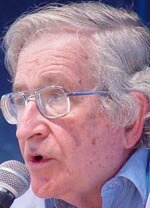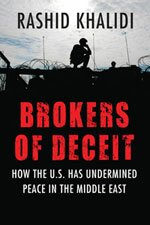[I]t is not certain UNRWA will manage to overcome Hamas’ objection to instituting Holocaust studies in Gaza… but the attempt should be encouraged, because it is impossible to understand Israel without understanding the place of the Holocaust in the Israelis’ universe, and one who does not understand his enemy will not be able to make peace with him either.
Palestine
Fayyad is a former World Bank economist who has been praised internationally and by Israel for reforming Palestinian finances and improving security in the occupied West Bank. He said he remains committed to a plan announced in August to build all the institutions of a viable state within two years.
In looking for a resolution of the Israeli-Palestinian conflict, then, we should once and for all stop looking to governments and officials (elected or otherwise), in the US, Israel, or among the Palestinians themselves. As the Obama administration has already demonstrated, the US government, in the present political conjuncture, will never put peace and justice in Palestine ahead of internal domestic pressures and politics; the Israeli government will not for one moment back down from its continually expanding colonization plan in the West Bank and East Jerusalem until it is compelled by outside pressure to do otherwise; and the Palestinian government — well, there is no such thing.
We strongly urge the leadership to reconsider its decision, and to begin to forge an independent path of diplomacy based on respect for international law that can lead to genuine justice and durable peace.
Palestinians have finally started to act in a different way. Instead of cursing the occupation, the new strategy is aimed at building up the desired Palestinian state. The idea is to force the Israelis to the negotiating table rather than beg them to come. The way to do that is to work for a state as if there were negotiations. This idea has been brilliantly developed by the Palestinian prime minister.
Loud applause broke out Saturday evening as it was announced that “brother” Dr Uri Davis had been elected to the Fatah movement’s largest governing body. Fatah conference spokesman Fawzi Salamah announced that the Jewish professor, who teaches Judaic studies at Al-Quds University in the West Bank, won 31st place out of 81 new members of Fatah’s Revolutionary Council.
“The new domain will give Arabic-speaking users in the Palestinian Territories, who use Palestinian ISPs, access to Google in Arabic and eventually, access to more locally relevant content,” the company said on its Arabia blog.
IOA Editor: Not surprisingly, we’re not hearing about Google filing a protest with Israel about disallowing the use of its new Palestinian service as a default by East Jerusalem residents.
Israel’s character is it’s own business. It is not up to the Palestinians to define it, Palestinian Authority Prime Minister Salam Fayyad said Thursday, when asked about Prime Minister Benjamin Netanyahu’s demand the Palestinians recognize Israel as a Jewish state.
Several new delegates speaking Tuesday pointed out the first task that lies before them is rebuilding Palestinian faith in Fatah. The new leadership will proceed carefully to see whether it faces the same corruption accusations as its predecessor. If it avoids such pitfalls, Fatah is very likely to gain support in Gaza and the West Bank.
With 90% of the votes counted, Fatah’s old guard appears to have suffered major upsets in an election for the movement’s highest decision-making body, the Central Committee.
Bethlehem – Ma’an – A Jewish member of Fatah was nominated for a spot on the movement’s Revolutionary Council on Saturday.
Reviewing Kill Khalid: The Failed Mossad Assassination of Khalid Mishal and the Rise of Hamas by Paul McGeough, Adam Shatz provides an excellent historical review of Hamas: tracing its history and Israel’s role in helping it become a prominent power in the Palestinian social and political arenas.
Hadash Chairman MK Mohammed Barakeh: “Passing our heritage from one generation to the next is essential for our steadfastness and survival in our homeland. Our survival is not open to interpretation or negotiation, and is our formative feature as a community that narrowly escaped the threat of expulsion and remained in its country.”























